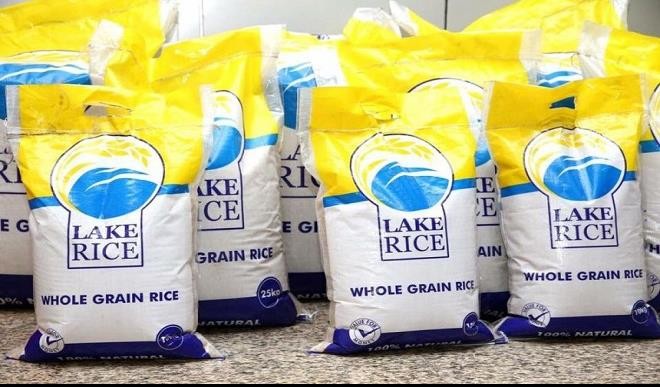Why Lake Rice deal collapsed
There are indications that the Memorandum of Understanding (MoU) between the Kebbi and Lagos state governments for the supply of rice, otherwise referred to as Lagos-Kebbi Rice (Lake Rice), might have collapsed, Daily Trust investigations show. Our correspondent in Kebbi reports that the agreement for the supply of Lake Rice was sealed in 2016 by […]

There are indications that the Memorandum of Understanding (MoU) between the Kebbi and Lagos state governments for the supply of rice, otherwise referred to as Lagos-Kebbi Rice (Lake Rice), might have collapsed, Daily Trust investigations show.
Our correspondent in Kebbi reports that the agreement for the supply of Lake Rice was sealed in 2016 by the Kebbi State Governor, Abubakar Atiku Bagudu, and the Governor of Lagos State, Akinwumi Ambode.
- #EndSARS: Oluwo Seeks Inclusion Of Traditional Rulers In Panel Of Inquiry
- We’re Reinventing Northern Nigeria’s Rich Heritage- Director, Arewa House
Daily Trust enquiries, however, show that the MoU has since collapsed following the failure of Ambode to return for a second term as governor.
Those in the know of the arrangements told Daily Trust that the incumbent Governor of Lagos State, Babajide Sanwo-Olu, seemed indisposed to the arrangement since he assumed power as he refused to give attention to the joint venture.
The Kebbi State Coordinator of Lake Rice said he was no longer in a position to speak about the project because he had been relieved of the position, and added that no one had been appointed to replace him.
However, Sources in the Lagos state government said the project was suspended due to the condition of the imota rice processing mill which had been under construction but was halted during the COVID-19 pandemic and merely commenced reconstruction some weeks ago.
During an inspection of the mill recently, the Acting Commissioner for Agriculture, Ms Abisola Olusanya, said the 32 Metric tonne per Hour Rice Mill at Imota will be operational in December for rice paddy to be processed.
She noted that to ensure regular supply of paddy to the mill in December, the state government had continually held a farmers’ sensitization, training and empowerment programme for over 800 rice farmers in Lagos State.
She further said there were partnerships with the corporate and local aggregators as well as other rice growing states for the supply of paddy to ensure the smooth running of the mill.
How the project started
Shortly before the signing of the MoU in 2016, Governor Akinwumi Ambode was quoted as saying that the future of Nigeria rested on such agreements; where states worked in harmony for mutual benefits as was the case between his state and Kebbi.
He said Kebbi and Lagos were into a collaboration by using their comparative advantages to expand the cultivation and processing of rice and other agricultural products.
Ambode said the partnership with Kebbi was in consonance with what he believed as the future for self-sufficiency in the country.
While in Kebbi, as part of a follow-up for ensuring that the deal was perfected, Ambode said, “We believe we should be able to feed ourselves. Kebbi State being the largest producer of rice and Lagos being the largest consumer; we thought we could synergise to reduce its importation. The future of Nigeria lies in this agreement.”
Earlier, Governor Bagudu said the agreement was in line with the vision of President Muhammadu Buhari towards the country’s march towards self-sufficiency in food production.
He said the idea for the joint partnership was conceived in view of the campaign of mass production of rice in the country, adding that high quality of Lake Rice could stand any integrity test.
In December, 2016, Governors Ambode and Bagudu launched the sale of Lake Rice to the public in Lagos.
At the launch, N12,000 was pegged as the price for a 50kg of the rice, while 25kg and 10kg went for N6,000 and N2,500 respectively.
Ambode described the event as historic, saying the March, 2016, MoU had started yielding results, explaining that, “We signed an MoU in March, 2016, for producing and consuming what is proudly Nigerian. We must make Nigeria work again. We want to produce made in Nigeria and what is good for Nigerians.”
In his remarks, Governor Bagudu said the agreement was the beginning of the turning point towards the journey to self-sufficiency in food production.
Presently, unless something positive is done by the two state governments, the project will collapse.
